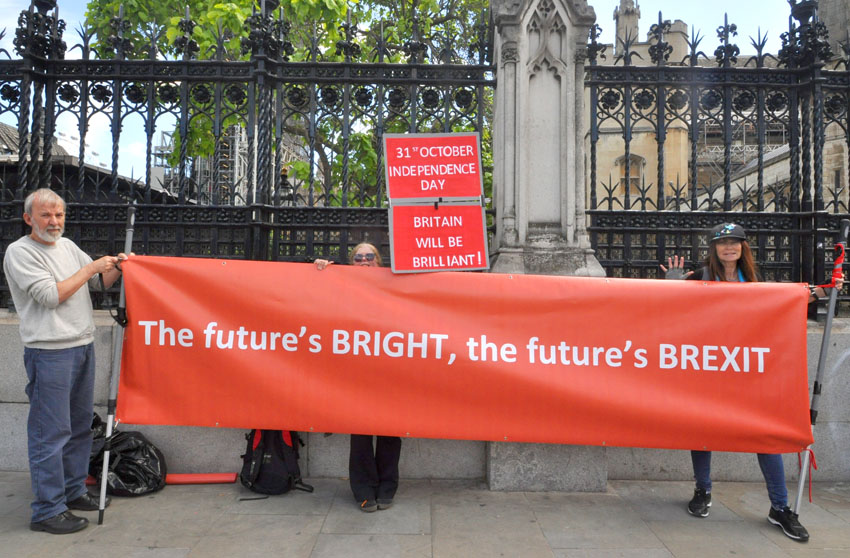GERMAN Chancellor Angela Merkel poured buckets of cold water over Tory PM Boris Johnson’s attempts to get a Brexit deal with the EU when, in a phone call yesterday morning, she told him that a deal is ‘overwhelmingly unlikely’, according to Downing Street which made the telephone conversation public.
The Prime Minister spoke to Merkel for 30 minutes, with Johnson underlining that Brexit negotiations in Brussels ‘are close to breaking down’.
An EU-UK agreement is ‘essentially impossible not just now but ever’ following the ‘clarifying’ phone call, Downing Street said.
A spokesman added: ‘The purpose of the call was to discuss the progress that has been made in the talks so far.
‘I would describe it as a frank exchange. The prime minister set out that the UK had made what we believe to be a significant offer but if we are to make future progress then the EU will need to compromise itself.’
Downing Street also said the talks are now at a ‘critical point.’
The government last week unveiled its proposals for a renegotiated Brexit deal, with the Prime Minister hoping this could be agreed before the current 31 October deadline.
During the call, Johnson was said to have told Merkel the plans present a ‘reasonable offer,’ but that it was apparent to him that ‘there is no desire for negotiation from the EU.’
Merkel’s spokesman said they do not reveal confidential conversations.
French President Emanuel Macron said the EU would decide at the end of the week whether a new deal is possible.
Under Johnson’s proposals with the EU:
- Northern Ireland would leave the EU’s Customs Union alongside the rest of the UK, at the start of 2021.
- But Northern Ireland would continue to apply EU legislation relating to agricultural and other products, – if the Northern Ireland Assembly approves.
- This arrangement could, in theory, continue indefinitely, but the consent of Northern Ireland’s Asssembly would have to be sought every four years.
- Customs checks on goods traded between the UK and EU would be ‘decentralised’ with paperwork submitted electronically and only a ‘very small number’ of physical checks.
- These checks should take place away from the border itself, at business premises or at ‘other points in the supply chain’.
This represents a massive concession, because the north of Ireland will effectively be in the single market with the EU. This means that the Irish Republic and Northern Ireland would both be in the EU’s Single Market while Northern Ireland would not be in the Customs Union.
